Affiliation: Administrators

Alan Acock Oral History Interview
Life history interview conducted by Chris Petersen.
March 2, 2017
Alan Acock (b. 1944), a Distinguished Professor Emeritus of Human Development and
Family Science, chaired OSU's HDFS department for twelve years, beginning with its
creation in 1990. An accomplished scholar in the field of family studies, Acock is
also well-known for his work in quantitative analysis - one particularly influential
book, A Gentle Introduction to Stata, is now in its fifth edition. He has likewise authored major papers on topics including
the impact of divorce on children and improved methods for working with missing statistical
values. In his interview, Acock traces his career as a sociologist at four different
institutions; comments on growth and change within the HDFS department; and lends
insight into his diverse body of scholarship.

Roy Arnold Oral History Interview
Life history interview conducted by Adam LaMascus.
September 6, 2013
Roy Arnold (b. 1941), a native of Nebraska, completed both a master's degree and a
doctorate at Oregon State University in Food Science. For twenty years a faculty member
at the University of Nebraska, Arnold came back to OSU in 1987 and, over nineteen
more years, served in numerous roles including Dean of the College of Agriculture
and University Provost. During his tenure as an upper administrator, Arnold oversaw
many of the reductions that were put in place as a result of the passage of the Ballot
Measure 5 property tax limitation initiative. He also pushed forward a number of new
initiatives at OSU - the University Honors College, the Ethnic Studies department,
and a dual admissions/dual enrollment program with Oregon's community colleges were
all formed during his years as provost. His interview covers the breadth of his career,
focusing primarily upon his long associations with the University of Nebraska and
Oregon State University.

Joe Beckman Oral History Interview
Life history interview conducted by Chris Petersen.
September 15, 2015
Joe Beckman (b. 1953), a Distinguished Professor of Biochemistry and Biophysics, has
been a Principal Investigator at the Linus Pauling Institute and a member of the OSU
faculty since 2001. A leader in the study of neurodegeneration, Beckman has spent
more than twenty years investigating the cause of, and searching for a cure for, amyotrophic
lateral sclerosis (ALS, or Lou Gehrig's Disease). Since 2002, Beckman has also served
as Director of OSU's Environmental Health Sciences Center, an organization that works
to foster and promote research on the impact of the environment on human health.
His interview focuses on his scientific education and military service; his breakthroughs
researching neurodegenerative disease; promising new studies that may result in an
effective treatment for ALS; and the institutional evolution of the Linus Pauling
Institute, the Environmental Health Sciences Center, and OSU itself.

John Bliss Oral History Interview
Life history interview conducted by Mike Dicianna.
August 21, 2015
John Bliss (b. 1951) was the first Starker Chair in Private and Family Forestry, occupying
this position within the OSU College of Forestry from its inception in 1998 to his
move into administration in 2012. A leading researcher on private forest policy and
forest-based rural development, Bliss has conducted influential work on the socioeconomic
impact of the forestry industry, paying particular attention to the roles played by
small woodland foresters. From 2012 to his retirement in 2016, Bliss served as Associate
Dean for Graduate and International Programs within the College of Forestry and, in
this capacity, contributed significantly to the increasing internationalization of
the college. His interview traces the progression of his academic career; his close
involvement with research and experiential learning opportunities both globally and
in Oregon's rural communities; and the advancement of the OSU College of Forestry
during his years of association.

Sue Borden Oral History Interview
Life history interview conducted by Chris Petersen.
July 28, 2015
Sue Borden (b. 1939) is an Oregon State alum who completed her master's degree in
Mathematics in 1962 and who also worked as an early computer programmer for what was
then the Department of Oceanography. In 1988 Borden was hired to lead the SMILE (Science
and Math Investigative Learning Experiences) Program at OSU, an initiative seeking
to promote interest in the STEM fields and enrollment in college among Oregon's minority
and under-served youth. By the time of Borden's retirement from OSU in 1999, the program
had been implemented in ten communities across the state and was acknowledged by the
Clinton administration with a Presidential award. Borden's interview focuses on her
own academic and career path as a woman in the sciences, her active involvement in
local music organizations, and the history of the SMILE Program during her years as
director.

Tammy Bray Oral History Interview
Life history interview conducted by Chris Petersen.
March 28, 2014
Tammy Bray (b. 1945) was the Executive Dean of OSU's Division of Health Sciences and
Dean of its College of Public Health and Human Sciences from 2002 to her retirement
in 2016. An accomplished researcher in the field of Nutrition, Bray arrived at OSU
in 2002 following stints as research professor and administrator at the University
of Guelph and the Ohio State University. As an OSU dean, Bray oversaw the expansion
and reorganization of what was formerly known as the College of Health and Human Sciences.
In 2014 the college achieved a major milestone when it became home to the first accredited
public health curriculum in the state of Oregon. Bray's interview focuses on her
upbringing in Taiwan, her academic career, and her efforts as a dean at Oregon State
University.
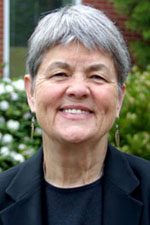
Karyle Butcher Oral History Interview
Life history interview conducted by Janice Dilg.
May 8, 2014
Karyle Butcher (b. 1942) was a member of the OSU Libraries faculty from 1981 to her
retirement in 2010, serving as University Librarian for the final fourteen years of
her career. As director of the OSU Libraries, Butcher oversaw a massive physical
expansion of the campus' main branch library, promoted a culture of scholarship and
innovation within the organization, and guided OSU Libraries to a position of leadership
within an information landscape rapidly transitioning from paper to electronic. During
Butcher's tenure as University Librarian, the University Archives and the OSU Press
- with Butcher serving as director - also came under the umbrella of the OSU Libraries.
Her interview traces her personal evolution as a librarian and as a leader, and also
documents the massive changes that came about during her years of association with
the OSU Libraries.

John Byrne Oral History Interviews
Four life history interviews conducted by Chris Petersen.
January - February 2014
John Byrne (b. 1928) has made an indelible impact on Oregon State University through
an association that has spanned over five decades. A trained geologist, Byrne arrived
in Corvallis in 1960 as one of Oregon State College's first faculty members in Oceanography.
Over time, Byrne assumed chairmanship of the Oceanography Department and later became
Dean of OSU's newly formed School of Oceanography. In 1976 Byrne moved into upper
administration, first as Dean of Research and later as Vice President for Research
and Graduate Studies. Following a three-year stint in Washington, D.C., where he
served as head of the National Oceanic and Atmospheric Administration, Byrne returned
to Corvallis as the twelfth President in OSU history. Byrne's presidency lasted from
1984-1995, a time period during which he did much to modernize university operations
amidst a budget crisis caused by significant reductions in state funding for higher
education. The Byrne oral history interviews trace the arc of his entire life, from
his childhood on Long Island to his graduate studies at USC, and on to his tenures
at Oregon State and with NOAA.

Emery Castle Oral History Interviews
Three life history interviews conducted by Chris Petersen.
October 14 - 15, 2014
Emery Castle (b. 1923), a widely respected agricultural economist, made a significant
impact on Oregon State University over four decades of service. At various points
the chair of the Agricultural Economics department, the Dean of the Graduate School,
and the head of the University Graduate Faculty of Economics, Castle was also one
of three co-chairs of the Commission on University Goals, a group that played an important
role in shaping the strategic agenda of the university in the early 1970s. A major
contributor to conversations on natural resources and the rural economy, Castle also
led a Washington, D.C.-based public policy think tank, Resources for the Future, from
1976-1986, before returning to Corvallis for the final seven years of his career.
In three interviews, Castle discusses his education and service during World War II;
his scholarly achievements in agricultural economics and rural studies; and his diversity
of experiences as an administrator in Corvallis and elsewhere.

Brent Dalrymple Oral History Interview
Life history interview conducted by Chris Petersen.
August 28, 2013
Brent Dalrymple (b. 1937) served as Dean of the College of Oceanic and Atmospheric
Sciences at Oregon State University from 1994 to 2001. Prior to his tenure at OSU,
Dalrymple was a distinguished geologist with the United States Geological Survey -
where he conducted important work on the Earth's magnetic field, among other areas
of interest - and a visiting professor at Stanford University's School of Earth Sciences.
In 2005 he received the National Medal of Science to honor "his pioneering work in
determining the geomagnetic polarity reversal timescale; a discovery that led to the
theory of plate tectonics." His interview focuses on the major themes of his career
at the USGS and Oregon State.

Natalie Dollar Oral History Interview
Life history interview conducted by Janice Dilg.
August 5, 2015
Natalie Dollar (b. 1963) has been a member of the OSU Speech Communications department
since 1993, and a member of the faculty at OSU-Cascades since 2002. Now the Associate
Dean of Arts and Sciences at the Bend campus, Dollar has focused her scholarly research
on cultures that choose to reside outside of the mainstream, a program of work that
has led to study of houseless youths in the Seattle area as well as fans of the Grateful
Dead music group. Her interview focuses on her southern roots and the impact that
her upbringing made on her as an academic and as a person; her research on alternative
cultures; and her long experience as a faculty member and administrator at the Cascades
branch campus.

Paul Farber Oral History Interviews
Two life history interviews conducted by Chris Petersen.
October 2014
Paul Farber (b. 1944) is a Distinguished Professor Emeritus of the History of Science
who worked at OSU from 1970 to his retirement in 2008. During his tenure as a member
of the OSU faculty, Farber served as chair of the General Science department and,
after the department's dissolution, the History department as well. A scholar of
the naturalist tradition and evolutionary ethics, Farber has published on a variety
of subjects, including the history of ornithology and changes in American views on
race mixing. His interviews focus on his evolution as a historian, the means by which
he acquired his scholarly toolkit, and his memories of General Science and History
over four decades working at OSU.

Balz Frei Oral History Interview
Life history interview conducted by Chris Petersen.
January 10, 2014
Balz Frei (b. 1958) served as Director of the Linus Pauling Institute at Oregon State
University from 1997 to 2016. A Distinguished Professor Emeritus of Biochemistry and
Biophysics, Frei's research has focused on the mechanisms causing chronic human disease,
in particular atherosclerosis and cardiovascular disease, and the role that micronutrients,
phytochemicals and dietary supplements might play in ameliorating these diseases.
His interview provides an overview of his life experiences and career path, beginning
with his formative years in Switzerland and continuing on to his academic appointments
in the United States. The interview's primary emphasis is Frei's tenure at OSU, with
particular attention paid to the growth of the Linus Pauling Institute under his leadership.

An Oral History of the Francois Gilfillan family
An interview with Nan Jensen and Ellen Johnson conducted by Anne Bahde and Trevor
Sandgathe.
November 1, 2013
An iconic figure in the history of Oregon State University, Francois Gilfillan (1893-1983)
was a Pharmacy alum of Oregon Agricultural College, graduating in the class of 1918.
After a period of time spent on the East Coast, Gilfillan returned to his alma mater
serving as its Dean of Science and, from 1941-1942, Acting President. A professionally
trained chemist, Gilfillan was instrumental in furthering science education both regionally
and nationally. Gilfillan was also a true Renaissance man who spoke or read at least
nine languages, including Chinook, collected rare books and antique silver, and cultivated
an authentic Japanese garden. With his wife Violette, Gilfillan raised four children
including Elizabeth (Ellen) and Nansie, who share their recollections of Gilfillan
family life in this interview.

Joe Hendricks Oral History Interview
Life history interview conducted by Janice Dilg.
August 4, 2014
Joe Hendricks (b. 1943) is an acclaimed gerontologist who chaired the OSU Sociology
department from 1989-1995. On the OSU campus, he is more widely known for having
served as the first Dean of the University Honors College (UHC), which he led from
its formation in 1995 to 2008. As Dean, Hendricks helped to shape the UHC's admissions
standards, grew enrollments, recruited teaching faculty, and carved out physical spaces,
including an honors dorm and two dedicated honors study spaces. Hendricks' interview
focuses on his scholarly achievements in gerontology, and the formation and growth
of the University Honors College at OSU.

Michael Henthorne Oral History Interview
Life history interview conducted by Mike Dicianna.
August 29, 2014
Michael Henthorne (b. 1952) worked as an administrator at OSU's Memorial Union from
1987 to his retirement in 2016, serving as Executive Director of the MU beginning
in 1994. During his time at Oregon State, Henthorne guided significant physical renovations
to the MU building, while also bolstering MU programming and serving as a vital advocate
for the Student Experience Center, a sister facility which was completed in Spring
2015. His interview focuses on the state of the Memorial Union upon his arrival,
work that was done to improve the MU's physical space and programming outreach, the
genesis of the SEC building, and the exciting future that Henthorne envisions for
MU operations going forward.

Jack Higginbotham Oral History Interview
Life history interview conducted by Chris Petersen.
November 3, 2015
Jack Higginbotham (b. 1958) has been a member of OSU's Nuclear Engineering faculty
since arriving in Corvallis in 1987, and has led the Oregon Space Grant program since
2002. During his years at Oregon State, Higginbotham has also served as Senior Reactor
Operator and Senior Health Physicist at the OSU Radiation Center; chair of the Radiation
Health Physics program; Associate Dean of the Graduate School; and President of the
Faculty Senate. In a wide-ranging interview, Higginbotham discusses his education
and academic work in nuclear science and engineering; his institutional memories of
Nuclear Engineering and Radiation Science at OSU; and the activities of Oregon Space
Grant during his years of association.

Becky Johnson Oral History Interview
Life history interview conducted by Janice Dilg.
August 3, 2015
Becky Johnson (b. 1955), Vice President for OSU-Cascades, has led OSU's branch campus
in central Oregon since 2008. Prior to her shift into administration, Johnson was
a natural resources economist in the OSU College of Forestry, whose research and teaching
focused on the economic values and impacts of non-market resources. Johnson has been
a member of the Oregon State faculty since first arriving in Corvallis in 1984 and
her administrative appointments have included several years as Vice Provost for Academic
Affairs and International Programs. Her interview provides insight into curricular
and demographic shifts that she has observed within the College of Forestry; changes
in the leadership roles that women have assumed at OSU in recent decades; the history
and growth of OSU-Cascades; and Johnson's sense of challenges and opportunities that
are specific to OSU-Cascades and its mission.
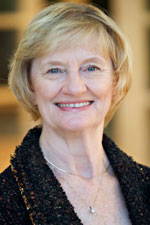
Ilene Kleinsorge Oral History Interview
Life history interview conducted by Chris Petersen.
February 10, 2015
Ilene Kleinsorge (b. 1949) was a member of the OSU College of Business faculty from
her arrival in 1987 to her retirement in 2015. For the final twelve years of her career,
Kleinsorge served as the college's Dean, a time period that saw significant change
within Business. As Dean, Kleinsorge oversaw broad changes to the college's curriculum
as well as the implementation of several new programs, a strengthened emphasis on
innovation, and the construction of a state-of-the-art facility, Austin Hall. Her
interview focuses on her atypical career path - which included stints as a factory
worker and licensed practical nurse - as well as the strategic planning process that
was central to the renewal of the College of Business. She also discusses her interactions
with Ken and Joan Austin, and recounts the story behind Austin Hall.

Kelvin Koong Oral History Interview
Life history interview conducted by Chris Petersen.
October 9, 2014
Kelvin Koong (b. 1943) worked in numerous administrative and faculty positions at
OSU from 1987 to 2011. During his tenure at Oregon State, Koong did much to advance
the missions of the College of Agricultural Sciences, the College of Veterinary Medicine,
and the OSU Extension and Experiments Stations. Known for his ability to work well
with state legislators, in 2001 Koong secured funds to expand the university's veterinary
medicine curriculum into a complete four-year program. He also led the fundraising
campaign that resulted in the Oldfield Animal Teaching Facility, opened in 2012. His
interview focuses on his upbringing in Taiwan, his education and research in animal
sciences, and his multifaceted administrative career at OSU.

Denise Lach Oral History Interview
Life history interview conducted by Chris Petersen.
July 21, 2015
Denise Lach (b. 1955) is a social scientist who has lead multiple research institutes
at OSU, including the Center for the Analysis of Environmental Change, and the Center
for Water and Environmental Stability. A member of the Oregon State faculty since
1996, Lach was named director of the College of Liberal Arts' School of Public Policy
when it was created in 2010, and she continues to serve in that capacity today. Lach's
interview focuses upon her path through academia, her development as a social scientist,
her research on the social and policy dimensions of various natural resources issues,
and her perspective on change and advancement within OSU's College of Liberal Arts.

Andy Landforce Oral History Interviews
Six life history interviews conducted by Mike Dicianna and Debora Landforce.
May 2013 - October 2015
Andy Landforce (b. 1917) graduated from Oregon State College in 1942, serving as student
body president his senior year. A World War II veteran, Landforce enjoyed a long career
at Oregon State University, first as a County Extension Agent and later as a Wildlife
Management Specialist. He also worked for an additional fifteen years in retirement
as a professional fishing guide. Among many other topics, the Landforce oral history
interviews focus on campus life at Oregon State College during the 1930s, the 1942
Rose Bowl game, his military service during World War II, and his post-war career
at OSU.

Phyllis Lee Oral History Interview
Life history interview conducted by Janice Dilg.
January 28, 2015
Phyllis Lee (b. 1936) was the first Director of OSU's Office of Multicultural Affairs,
which was created in 1991 and charged with promoting diversity and improving the campus
climate for students, faculty and staff of color. A graduate of OSU's doctoral program
in Education and a former member of the university's Board of Visitors, Lee spearheaded
a number of outreach and curricular activities meant to promote dialogue on issues
of diversity, both in the classroom and in the community. Lee retired from OSU in
2003. One year later, President Ed Ray created the Phyllis S. Lee Award, which is
presented annually and honors a member of the OSU community who exemplifies Lee's
commitment and dedication to social justice and to the teachings of Dr. Martin Luther
King, Jr. Her interview focuses on her education, her long commitment to diversity
issues, and her many activities as Director of the Office of Multicultural Affairs.

An Oral History of the Linus Pauling Institute
Six interviews with Steve Lawson, conducted by Chris Petersen.
August - December 2011
The Linus Pauling Institute was founded in 1973 by Linus Pauling and two colleagues,
and was originally located near the campus of Stanford University. Primarily devoted
to exploring Pauling's controversial ideas on the health benefits of large doses of
vitamin C, the Institute gradually developed a broad and eclectic research agenda
that included work on superconductivity, molecular evolution, and metabolic profiling.
Consistently hamstrung by financial woes and further embattled by personnel disputes
that resulted in legal actions, the Institute was on the brink of closure by the time
of Pauling's death in 1994. Buoyed by a handful of timely donations and the administrative
acumen of Pauling's eldest son, Linus Pauling Jr., the Institute managed to stay afloat
and, in 1996, relocated to Oregon State University. Today the Linus Pauling Institute
is a thriving research enterprise that makes regular contributions to the fights against
cancer and cardiovascular disease, and to the promotion of healthy aging. Over the
course of six interviews, Steve Lawson, an Administrative Officer at LPI who has worked
for the Institute since 1977, relays his memories of the Institute's colorful history
and shares his impressions of Linus Pauling, whom Lawson knew as a colleague and as
a friend for nearly two decades.

Bob Malouf Oral History Interview
Life history interview conducted by Mike Dicianna.
April 19, 2017
Bob Malouf (b. 1946) spent his entire career in the world of Sea Grant, working on
two coasts and intersecting with Oregon State University on three different occasions.
Malouf earned his master's degree from OSU in 1971, a time period during which he
distinguished himself as Oregon Sea Grant's first trainee. In 1975 he completed his
Oregon State Ph.D. and, from 1991 to 2008, he served as Director of Oregon Sea Grant.
At various points, Malouf also worked as a scientist and administrator for Sea Grant
programs in Delaware and New York. In his interview, Malouf recounts key points in
his evolution as an academic and leader, and also provides detailed insight into the
development of Oregon Sea Grant as well as the ways in which it compares with other
Sea Grant programs on the Atlantic Coast.

Melinda Manore Oral History Interview
Life history interview conducted by Chris Petersen.
November 30, 2015
Melinda Manore (b. 1951) received her Ph.D. in Nutrition from Oregon State University
in 1984. In 2001, Manore returned to OSU, joining the faculty as chair of what was
then the Department of Nutrition and Food Service Management. A pioneering scholar
of the intersections between nutrition and exercise, Manore has published widely on
topics including rural obesity in children, nutrition and exercise for women, and
healthy eating for athletes. Her interview traces the arc of her academic career with
a particular focus on her achievements in research. Included as a secondary topic
are Manore's institutional memories of the transformation of the College of Home Economics
into what is now the College of Public Health and Human Sciences.

Bruce Mate Oral History Interview
Life history interview conducted by Mike Dicianna.
September 8, 2016
Bruce Mate (b. 1946) has been associated with OSU for more than four decades, first
as a post-doctoral fellow in Oceanography, then as a Marine Extension Agent, and ultimately
as a faculty member and administrator. Mate is internationally recognized as the chief
pioneer of radio and satellite tracking of marine mammals; specifically, of whale
populations. Beginning in 1979, Mate and his research group have used increasingly
sophisticated tagging and tracking devices to better understand the migratory, feeding
and reproductive habits of a wide range of whale species across multiple habitats.
Mate and his colleagues have tagged over eight-hundred whales in all of the world's
oceans, traveling to fifty-five countries in the process. The founder and director
of the OSU Marine Mammal Institute, Mate's scientific contributions have led to numerous
policy initiatives that have helped to rehabilitate whale populations that were once
bordering on extinction. His interview largely recounts the specifics of his groundbreaking
research, while also touching upon the history of the Marine Mammal Institute as well
as his personal memories of working in Extension.

Chris Mathews Oral History Interview
Life history interview conducted by Chris Petersen.
September 2, 2011
Chris Mathews (b. 1937) is a Distinguished Professor Emeritus of Biochemistry and
Biophysics who worked at OSU from 1978 to his retirement in 2002, chairing the Department
of Biochemistry and Biophysics for the whole of that time. Internationally recognized
as a major contributor to the field of biochemistry with an emphasis on enzymology,
virology, and genetics, Mathews is also a co-author of a highly successful textbook,
Biochemistry, now in its third edition. Mathews was likewise involved with the creation of the
Center for Gene Research at OSU, as well as the establishment of the Linus Pauling
Institute on the OSU campus and the planning of the Agricultural and Life Sciences
Building. His interview focuses on his path through academia, the research that he
has pursued in biochemistry, and his memories of involvement with numerous initiatives
in the sciences over a twenty-four year career at OSU.

Brenda McComb Oral History Interview
Life history interview conducted by Chris Petersen and Kalia Flocker.
February 24, 2015
Brenda McComb was born William McComb in 1952. Over two stints at OSU, McComb worked
as a member of the faculty in the Department of Forest Sciences and Department of
Fisheries and Wildlife, as Dean of the Graduate School, as Vice Provost for Academic
Affairs, and as a member of the OSU Board of Trustees. In addition, McComb has been
central to the development of a support network for transgender individuals both on
campus and throughout the mid-Willamette Valley. Her interview focuses largely on
the story of her own gender journey, including discussion of the personal and professional
impacts of her gender transition from male to female. The session also touches upon
her work in academia as a faculty member, an administrator and an advocate.
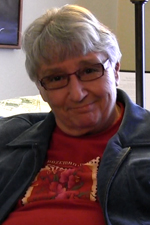
Mina McDaniel Oral History Interview
Life history interview conducted by Janice Dilg.
December 1, 2015
Mina McDaniel (b. 1944) earned both bachelor's and master's degrees from OSU in Food
Science and Technology. A sensory scientist, McDaniel returned to her alma mater in
1983 to lead the OSU Sensory Science Laboratory, overseeing projects related to beer,
wine, and Asian noodles, among many other topics. McDaniel also emerged as an important
advocate for women on campus, and filled numerous roles in this capacity during her
years as a faculty member. She concluded her OSU career as Director of Academic Programs
and Academic Assessment before retiring in 2006. McDaniel's interview provides a detailed
account of campus life and the Food Science student experience in the 1960s. McDaniel
also discusses the arc of her own career; the activities of the Sensory Science Lab
during her years of association; and her sense of the changing status of women at
OSU over five decades.
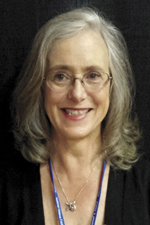
Starr McMullen Oral History Interview
Life history interview conducted by Chris Petersen.
September 4, 2015
Starr McMullen (b. 1951) was a member of the OSU Economics faculty from 1980 to her
retirement in 2014, serving as department chair from 2001 to 2005. An award-winning
scholar of transportation economics, McMullen has also served on the Oregon Governor's
Council of Economic Advisors since 2003. McMullen is likewise an accomplished violinist
and fiddler, who won the 2014 National Senior Fiddle Championship at the National
Oldtime Fiddle Contest. Her interview traces her work in economics; her institutional
memories of the Economics department at OSU; her perspective on the struggles that
women continue to face in academia; and her on-going pursuits as a musician.

Frank Moore Oral History Interview
Life history interview conducted by Chris Petersen.
April 11, 2017
Frank Moore (b. 1945) is a Distinguished Professor Emeritus of Zoology who was an
active member of the OSU faculty from his arrival in Corvallis in 1975 to his retirement
in 2007. Moore is perhaps best known for his discovery of vasotocin, a hormone that
plays a major role in the reproductive behavior of many different types of animal
species, including the salamanders that Moore used as his primary research model.
Moore also made significant contributions to the scientific understanding of neurological
systems in amphibians. In his interview, Moore traces the unusual path that he took
to academia; comments on the major themes of his research; and shares his perspective
on his personal and academic partnership with Kathleen Dean Moore, herself an OSU
Distinguished Professor and acclaimed author.

Sylvia Moore Oral History Interview
Life history interview conducted by Janice Dilg.
March 31, 2015
Sylvia Moore (b. 1942) played a vital role in advancing women's athletics over a thirty-three
year career as a coach, official, instructor and administrator at OSU. Moore, who
at various points coached both the women's basketball and gymnastics teams, also served
as Director of Women's Athletics on two different occasions. She is likewise the
first woman to have worked as Athletic Director for the entire university, having
held that post as an interim appointment in 1985. Moore also volunteered as an unpaid
official for five different sports during her OSU career. Her interview focuses on
the early years of women's athletics at Oregon State, the implementation and impact
of Title IX, and Moore's activities both within the Athletic Department and in service
to other areas of the university.

Janet Nishihara Oral History Interview
Life history interview conducted by Chris Petersen.
September 2, 2015
Janet Nishihara (b. 1956) first came into contact with OSU as an undergraduate, majoring
in English Education and completing her degree in 1978. She returned to Oregon State
in 1980 as a master's degree student in the College Student Services Administration
program, a time period during which she also became involved with the Educational
Opportunities Program (EOP) at OSU. For more than three decades following, Nishihara
has played a central role in a wide variety of student support and diversity development
initiatives on campus. In 2009, after many years on staff, Nishihara was promoted
to director of EOP, the mission of which is to provide support for the personal and
academic development of traditionally underrepresented students at OSU. In her interview,
Nishihara reflects on her upbringing as a third generation Japanese-American raised
in rural eastern Oregon; discusses her multifaceted experiences as a student and faculty
member at OSU; and shares her perspective on diversity advancement at the university
from the mid-1970s to present day.

David Noakes Oral History Interview
Life history interview conducted by Chris Petersen.
June 4, 2015
David Noakes (b. 1947) is a professor of Fisheries and Wildlife at OSU as well as
director and senior scientist at the Oregon Hatchery Research Center (OHRC). Noakes
came to Oregon State in 2005 after a long and distinguished career at the University
of Guelph in Ontario, Canada, where he developed an international reputation as a
scholar of fish behavior, evolution and genetics. Under Noakes' leadership, the OHRC
engages with researchers from around the world as well as local groups in exploring
the relationship between hatchery raised fish, wild fish, and the environment. Noakes'
interview focuses on his upbringing and education in Canada, his academic work in
fish behavior, and the on-going work of the OHRC.

Michael Oriard Oral History Interviews
Two life history interviews conducted by Chris Petersen.
March 2015
Michael Oriard (b. 1948) is a Distinguished Professor Emeritus of American Literature
and Culture who worked at OSU from 1976 to his retirement in 2013. Oriard is also
a former professional football player who, after receiving All American honors at
the University of Notre Dame, spent four seasons in the National Football League as
an offensive lineman with the Kansas City Chiefs. As an academic, Oriard's primary
focus has been the cultural history of football, and he is widely recognized as an
expert on the United States' most popular sport. In two interviews, Oriard discusses
his life as a student athlete and professional football player, his growth and productivity
as a scholar, and the fragile status and uncertain future of American football.

Clara Pratt Oral History Interview
Life history interview conducted by Janice Dilg.
August 4, 2015
Clara Pratt (b. 1948) worked as a faculty member at OSU for more than thirty years,
directing the university's Gerontology program from 1974 to 1993, and also serving
as Oregon State's final dean of Home Economics. It was in this latter capacity that
Pratt was closely involved with the dissolution of what was then known as the College
of Home Economics and Education, and the creation of the predecessor to today's College
of Public Health and Human Sciences. Pratt was likewise involved in the early conversations
surrounding the creation of a branch campus in Bend, and to this day works part-time
as an instructor at OSU-Cascades. Her interview touches upon her forty year association
with OSU and her key involvement in major changes within Gerontology, Home Economics,
Health and Human Sciences, and OSU-Cascades.

Ed Ray Oral History Interviews
Four life history interviews conducted by Chris Petersen.
June - August 2015
Ed Ray (b. 1944), the fourteenth President of Oregon State University, has overseen
both historic growth on campus and a major recalibration of university ambitions.
Trained as an economist, Ray spent thirty-three years at Ohio State University, where
he served as chair of the Economics department before moving into central administration,
first as Chief Information Officer and later as Provost. Ray came to OSU in 2003
and set in motion a strategic planning process that realigned university structures
and goals. He also launched OSU's first comprehensive capital campaign, The Campaign
for OSU, which raised $1.142 billion and resulted in a busy period of campus construction
as well as the endowment of seventy-nine faculty positions and the creation of over
600 scholarship and fellowship funds. Over four interviews, Ray reflects on his upbringing
and education; discusses his roots as a scholar and an administrator; and shares his
perspective on a wide array of initiatives that have moved forward during his tenure
as OSU President.

Pat Reser Oral History Interview
Life history interview conducted by Chris Petersen.
April 24, 2015
Pat Reser (b. 1938) and her family have made a major impact on OSU as donors, leaders
and high profile advocates for a variety of university initiatives. Pat and her husband
Al both graduated from Oregon State College in 1960, she in Elementary Education and
he in Business Administration. A public school teacher and mother of five children,
Pat organized Reser family life while her husband worked long hours building Reser's
Fine Foods from a family business to an international corporation employing more than
3,000 people. The Reser family later played a significant role in advancing multiple
goals important to OSU, including the renovation and expansion of the school's football
stadium, which was renamed Reser Stadium in 1999 in honor of a major gift made by
the family. The Resers later provided lead gifts for two signature projects of the
Campaign for OSU - the Linus Pauling Science Center and Austin Hall. Pat Reser served
as a co-chair of the school's capital campaign, and later was elected as the first
chair of the OSU Board of Trustees. Reser's interview focuses on her life and partnership
with her husband Al, her professional work in education and her volunteer work in
Beaverton and Corvallis, and her insight into the Reser family's key involvement with
development at OSU.
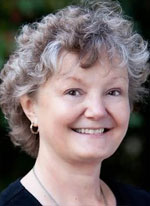
Beth Rietveld Oral History Interview
Life history interview conducted by Janice Dilg.
June 11, 2014
Beth Rietveld (b. 1953) served as Director of the OSU Women's Center from 1992-2011
and was an influential agent of change within both the Women's Center and the larger
campus community. A recipient of the National Women's Studies Association's Lifetime
Achievement Award, Rietveld made important contributions to campus dialogues concerning
inclusiveness for the LGBT community, salary equity for women faculty, and work-life
balance issues. Prior to her tenure as head of the Women's Center, Rietveld was,
variously, Assistant Director of Physical Recreation and Assistant Director of Student
Involvement at OSU. Her interview focuses on the arc of her career, the development
of her voice as a womens rights activist, and the changes in campus climate that she
has observed over more than three decades of involvement with OSU.
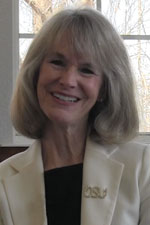
Les Risser Oral History Interview
Life history interview conducted by Janice Dilg.
March 24, 2014
Les Risser (b. 1949), a native of Cleveland, Ohio, met her husband Paul while both
were employed by Miami University of Ohio. The couple married in November 1995 and
moved to Corvallis shortly thereafter, when Paul assumed the President's office at
Oregon State University. As university ambassador and First Lady, Les Risser engaged
actively with numerous groups both on campus and off. In her interview, she discusses
the six years that she spent in Corvallis and the activities that helped define her
life while at OSU.

Paul Risser Oral History Interviews
Two life history interviews conducted by Janice Dilg.
March 24 - 25, 2014
Paul Risser (1939-2014), an internationally renowned botanist, served as President
of Oregon State University from 1996-2002. While President, Risser did much to increase
enrollments and expand the Corvallis campus, while also establishing a branch campus
in Bend, Oregon and boosting the reach of OSU's online course offerings. His interviews
discuss the formation and implementation of his presidential agenda including important
changes in the Colleges of Business and Engineering, and a renewed emphasis on athletics.
He also reflects upon numerous capital projects that came to fruition during his time
in Corvallis as well as the establishment of the Bend campus, the creation of the
University Honors College, and the arrival of the Linus Pauling Institute.

David Robinson Oral History Interview
Life history interview conducted by Janice Dilg.
September 30, 2015
David Robinson (b. 1947) was a member of the OSU English faculty from 1976 to his
retirement in 2016, and held the Oregon Professorship in English - the OSU College
of Liberal Arts' first endowed chair - from its inception in 1991. Recognized internationally
as an authority on American Transcendentalist authors, Robinson has written numerous
books on Ralph Waldo Emerson and Henry David Thoreau, among other nineteenth century
American writers and philosophers. For fifteen years Robinson also directed the OSU
Center for the Humanities, an institute dedicated to improving the vitality and quality
of humanities teaching and research at Oregon State. His interview focuses on his
personal scholarly evolution; his memories of significant change within the OSU English
department; and his perspective on the broader advancement of the humanities over
a forty year career at OSU.
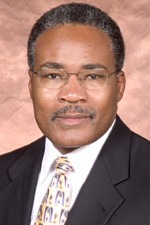
Larry Roper Oral History Interview
Life history interview conducted by Janice Dilg.
November 7, 2014
Larry Roper (b. 1953) served as Vice Provost for Student Affairs from 1995 to his
retirement from upper administration in 2014. During his years as Vice Provost, Roper
proved instrumental to a number of university initiatives, including the OSU "Campus
Compact," the development of the first-year experience program, and a university-wide
assessment effort. Roper, who is one of the first African American upper administrators
in Oregon State history, has also been central to a variety of diversity actions both
on campus and in the community. A faculty member in the OSU Ethnic Studies department,
Roper now directs both the College Student Services Administration program as well
as the undergraduate minor in Social Justice. His interview traces his progression
as a leader within academia; documents his activities and contacts at Oregon State;
and reflects on both the continuing issues and the gradual progress of diversity enhancement
at OSU.

Darlene Russ-Eft Oral History Interview
Life history interview conducted by Chris Petersen.
June 23, 2016
Darlene Russ-Eft (b. 1947) is a faculty member in OSU's College of Education who arrived
at the university in 2001 after spending seventeen years in the private sector. Known
today as a founder of the field of Human Resources Development, Russ-Eft has written
widely on program evaluation and the transfer of training. In 2008, Russ-Eft became
chair of the Adult Education and Higher Education Leadership discipline within the
College of Education and, for many years, she has been actively involved in OSU's
highly regarded doctoral program in Community College Leadership. In her interview,
Russ-Eft shares a series of recollections dating to her years in the private sector,
and provides her institutional memories of the evolution and growth of the College
of Education since the turn of the century.

Henry Sayre Oral History Interview
Life history interview conducted by Janice Dilg.
August 5, 2014
Henry Sayre (b. 1948) is a Distinguished Professor of Art History who has worked at
OSU since 1981 and at the OSU-Cascades campus since its opening in 2001. Sayre is
also an accomplished teacher and the author of a number of books, including a groundbreaking
art appreciation textbook, A World of Art, now in its seventh edition, and the children's book From Cave Paintings to Picasso, winner of an Oregon Book Award. As chair of the curriculum committee and as academic
provost, Sayre has also been instrumental in the on-going development of the Cascades
campus in Bend, Oregon. His interview focuses on his experiences as a professor in
the liberal arts at OSU, his leading role at OSU-Cascades, and his influential work
as an art historian and art educator.
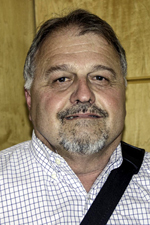
John Talbott Oral History Interview
Life history interview conducted by Mike Dicianna.
June 29, 2015
John Talbott (b. 1955) has been the director of the Sun Grant Western Regional Center
at OSU since arriving on campus in 2011. Under his leadership, Sun Grant has facilitated
important scientific research on biofuels, life cycle analysis, and bioproduct conversion
processes, all projects that seek to improve environmental sustainability while also
contributing to a more diversified agricultural and industrial economy. Since 2013,
Talbott has also served as Assistant Director of the Oregon Agricultural Experiment
Station, managing the grant processes, work plans, and research emphases for Experiment
Station faculty across the state. His interview provides an overview of his career
in carbon sequestration and environmental sustainability, and details the mission
and activities of Sun Grant at OSU from its inception up to present day.

Lisa Templeton Oral History Interview
Life history interview conducted by Chris Petersen.
August 6, 2015
Lisa Templeton (b. 1967) has been instrumental to online learning at OSU since its
first programmatic inception in 2002, and has served as director of the university's
Extended Campus since 2008. Under Templeton's leadership, OSU Ecampus has emerged
as a national leader in online education to the point where, in 2015, it was ranked
fifth out of three-hundred online bachelor's degree programs, delivering nineteen
undergraduate majors and twenty-two graduate programs to over 4,500 students. Templeton's
interview focuses on the institutional history of distance education at OSU during
the internet age, the inner-workings of OSU Ecampus today, and the environment navigated
by faculty who are teaching and students who are learning online.

Jo Anne Trow Oral History Interview
Life history interview conducted by Janice Dilg.
December 13, 2013
Jo Anne Trow (b. 1931) enjoyed a long and notable career at OSU, where she held numerous
positions in teaching and administration; among them, Trow was the university's last
Dean of Women and its first female Vice President. Over the course of her career,
Trow spearheaded work to address numerous issues of inequality faced by female faculty,
such as salary parity. These discussions and activities eventually led to the formation
of a new infrastructure to support women on campus, including the OSU Women's Network
and the Women's Center. With her husband Cliff Trow, an emeritus professor of History
and retired state Senator, Jo Anne has also been very active in the Corvallis community.
Her interview focuses on her upbringing and education, her career at OSU, the advancement
of equality initiatives on campus, and her volunteer work in retirement.

Paul Valenti Oral History Interview
Life history interview conducted by Chris Petersen and Dominic Cusimano.
February 24, 2014
Paul Valenti (1920-2014) was integrally connected to Oregon State University for more
that seventy years, beginning with his arrival on the Oregon State College campus
as a student athlete in 1938. A member of the Beaver basketball squad during his
undergraduate years, Valenti later served as freshman baseball coach, freshman basketball
coach, head basketball coach and head tennis coach, spanning a time period from 1946-1970.
He continued on as Assistant Athletic Director until retiring in 1982, and remained
an enthusiastic ambassador for OSU until his death in 2014. His interview covers
his upbringing in California, his school and coaching experiences at OSU, and his
recollections of many people that he met along the way.
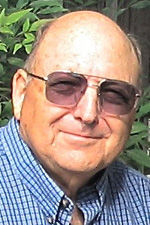
Tony Van Vliet Oral History Interview
Life history interview conducted by Janice Dilg.
November 14, 2013
Tony Van Vliet (b. 1930) is both an alum and an emeritus member of the OSU faculty.
Van Vliet studied Forestry at Oregon State College, graduating with a B.S. in 1952
and attaining a master's degree in Forest Products in 1958. He began his teaching
career in 1955, a tenure that lasted until 1990 and included thirty-five years on
faculty in the College of Forestry. From 1971-1978, Van Vliet was also involved with
the university's Career Planning and Placement Center, serving as Director from 1978
until his retirement from OSU. Van Vliet likewise built a second career as a legislator
in the Oregon House of Representatives. A moderate Republican, Van Vliet served in
Salem from 1974-1995, during which time he focused on support for education and revision
of the state's tax system. His interview focuses on his background and early years,
his experiences as an OSC student, his memories of working in the legislature, and
his successful advocacy of the Corvallis Riverfront project.

Marianne Vydra Oral History Interview
Life history interview conducted by Janice Dilg.
May 27, 2015
Marianne Vydra (b. 1963) is the highest-ranking female administrator in the OSU Athletic
Department. A member of the Athletic Department staff since 1992, Vydra initially
came to Corvallis to work as an academic counselor. In 1996 she was promoted to Associate
Athletic Director for Academic and Student Services, and in 1998 she became the Athletic
Department's Senior Women's Administrator. In this capacity, Vydra has been central
to a number of initiatives, playing a key role in the forward advancement of women's
sports at the university and helping to found the popular Beavers Without Borders
international service program. In her interview, Vydra discusses her path through
athletics administration, the great strides made by the Athletic Department during
her years at OSU, and the legacy of Title IX in propelling women's intercollegiate
athletics programs across the country.

Janet Webster Oral History Interview
Life history interview conducted by Chris Petersen.
November 14, 2014
Janet Webster (b. 1953) served as the head of the Guin Library at Hatfield Marine
Science Center from 1989 to her retirement in 2015. Active in regional and international
professional organizations alike, Webster received numerous awards over the course
of her career including, in 2003, Librarian of the Year from the Oregon Library Association.
While at Guin, Webster oversaw library activities during a period of major technological
change, and was instrumental in building an infrastructure suitable for serving Guin's
very diverse user base on the Oregon coast. For several years, Webster also administered
the work of OSU's other branch libraries, including the OSU-Cascades library in Bend.
Her interview focuses on her upbringing, educational experiences and ultimate decision
to pursue a career in libraries; her work and contacts at HMSC; and the changes that
she has witnessed in coastal community life and within the library profession.

Jim Welty Oral History Interview
Life history interview conducted by Mike Dicianna.
April 21, 2015
Jim Welty (b. 1933) earned three degrees from Oregon State, completing bachelor's
(1954) and master's (1959) studies in Mechanical Engineering, as well as a doctorate
in Chemical Engineering, which he finished in 1962. His Ph.D. in hand, Welty was
promptly hired to the Oregon State Mechanical Engineering faculty, where he remained
until retiring in 1996. During this time, Welty served as department chair for fifteen
years, from 1970 to 1985. A respected scholar of fluid dynamics and heat transfer,
Welty, along with two OSU colleagues, co-authored a hugely successful textbook that
was first published in 1969 and is still used in classrooms today. His interview provides
an overview of a personal association with Oregon State's College of Engineering that
has few parallels, one that spans parts of seven decades.

Tony Wilcox Oral History Interview
Life history interview conducted by Chris Petersen.
June 23, 2015
Tony Wilcox (b. 1951) was a member of the faculty of the College of Public Health
and Human Sciences from his arrival at OSU in 1987 to his retirement in 2015. Primarily
interested in exercise physiology as a researcher, Wilcox also served as chair of
the Department of Exercise and Sports Science from 1994 to 2011, and as co-director
of the School of Biological and Population Health Sciences from 2011 to 2015. Wilcox
likewise spent more than a dozen years as an OSU Faculty Senator and was President
of the Faculty Senate in 1997. His interview focuses on his work as a researcher and
administrator in exercise science, his life-long passion for running, and his many
contributions to the Faculty Senate and to a wide swath of university committees.

Tom Yates Oral History Interview
Life history interview conducted by Mike Dicianna.
February 10, 2016
Tom Yates (b. 1927) was among the very first individuals to be hired as a computer
programmer by the state of Oregon. Trained in mathematics and intending to become
a teacher, Yates instead discovered a love of computers in the mid-1950s. In 1957,
the state hired Yates to fill the newly created position of Electronic Data Processing
programmer, and over the course of the next five years he wrote programs that supported
the functions of multiple governmental departments. In 1962, Yates accepted a position
as director of the Statistics department computer lab at Oregon State University,
and he later proved crucial to expansion of computing functions on campus, including
the automation of OSU's class registration process. In 1976, he was named Director
of the OSU Computer Center, a position that he held until his retirement from Oregon
State in 1985. His interview traces his long and pioneering career in computer programming,
and provides institutional memories of the advancement of OSU's computing infrastructure
in the 1960s, 1970s and 1980s.

Russ Youmans Oral History Interview
Life history interview conducted by Mike Dicianna.
May 7, 2015
Russ Youmans (b. 1936) joined the OSU faculty in 1966 as a researcher and Extension
liaison operating out of the Agricultural Economics department. From 1977 to his retirement
in 1999, Youmans headed the Western Regional Development Center (WRDC), a federally
funded organization based at OSU and charged with linking land grant universities
with local policymakers to more effectively address issues of socio-economic development
in rural communities. As director, Youmans oversaw a wide swath of activities focusing
on, among other issues, health care, economic progress, and leadership education in
rural areas all across the western United States. His interview recounts his own rural
upbringing and education in agricultural economics; the creation and mission of the
WRDC; and the many activities with which he was involved as center director.
